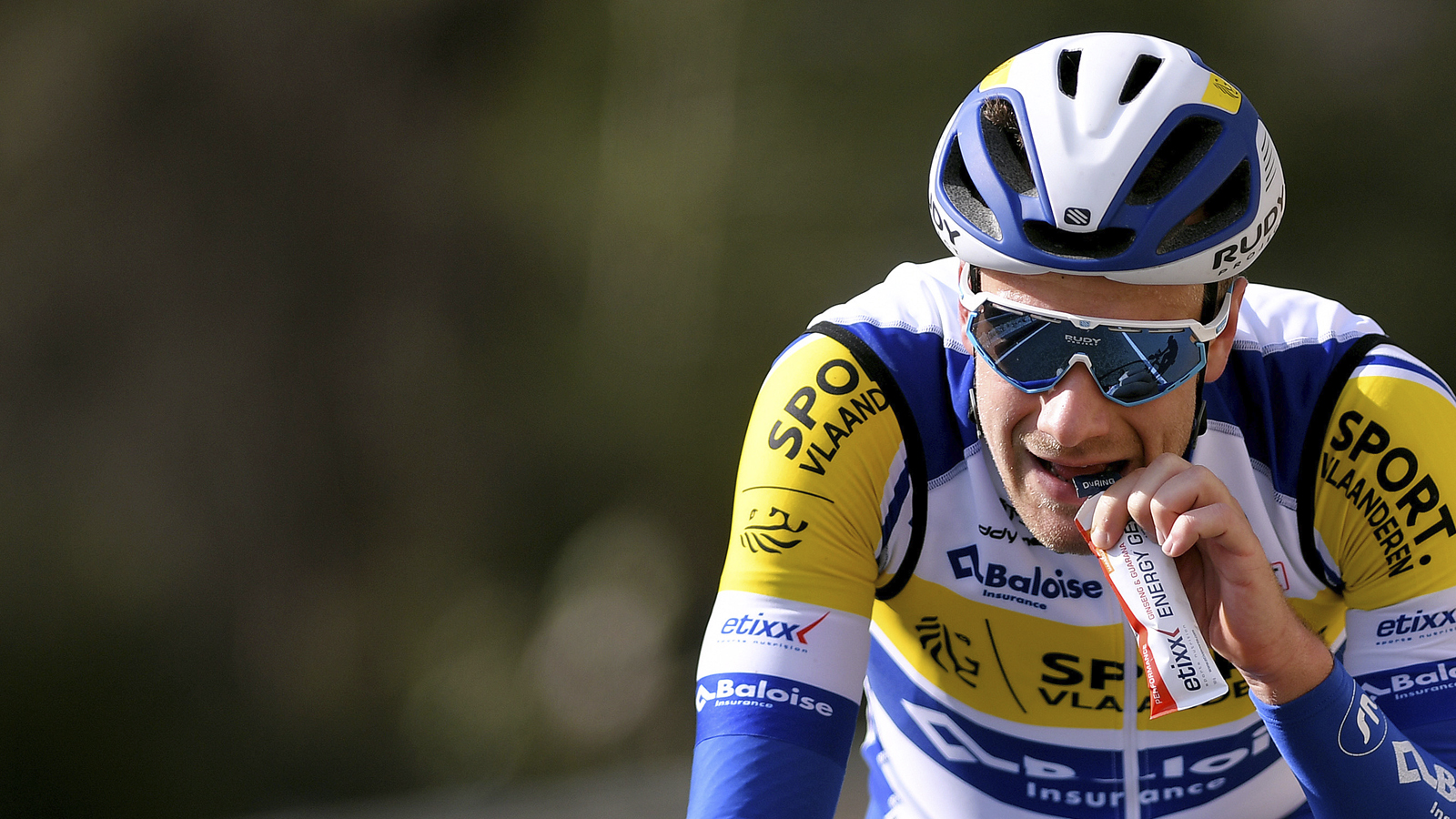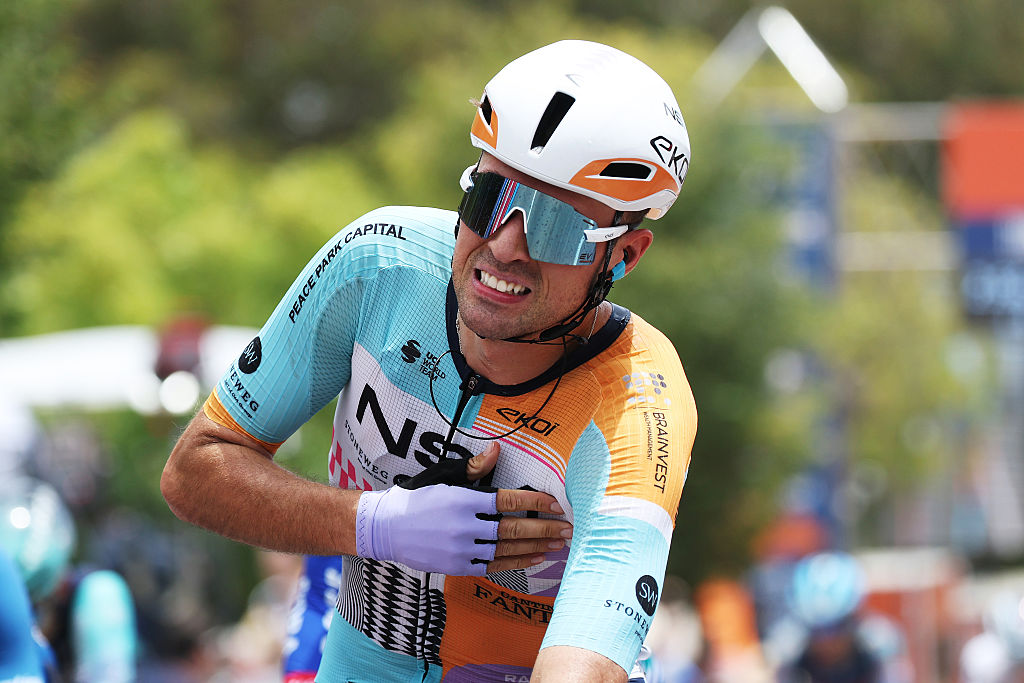Zwift eRacing nutrition tips: How to fuel for a bike race
With e-racing becoming an increasingly popular pastime, and the level of competition continually rising, racers will need to fuel correctly to achieve better results on Zwift

If you're one of the millions worldwide practising self-isolation and staying indoors, you've probably considered tackling a Zwift race, but like with any bike race, correct nutrition strategy is paramount to success.
When cycling for 30 minutes or more, the most likely contributors to fatigue are dehydration and carbohydrate depletion. Overheating also plays a role, but we have previously discussed methods to improve convective heat loss during indoor cycling.
Your nutritional strategy should help prevent dehydration of >2-3% of body weight in order to contribute to the prevention of fatigue. This can be equally important during indoor cycling on platforms such as Zwift, as we have previously explained sweat losses occur because there is a need to dissipate the heat that is generated during exercise.
How to fuel for a race
Pre-race
We store carbohydrates in the form of glycogen in two main areas: the liver and muscles. Before your race, the body’s glucose concentration is regulated by the liver releasing glucose. Your pre-race meal is therefore aimed at restoring this liver glycogen.
You should aim to eat high glycemic index (quickly digestible) food sources 1.5 to 2 hours before your race - examples include white bread with some honey and a banana.
As dehydration can compromise exercise performance it is important to start your event in a hydrated (normal) state. You should aim to drink five to seven millilitres of fluid per KG of body weight from four hours before the event.
After your pre-race meal, you should only start to eat again once you have started your warm-up. Have something small to eat (e.g. banana, gel, half a bar) 30 - 45 minutes prior to the start of your event and consume ~300ml of fluid during this period.
The latest race content, interviews, features, reviews and expert buying guides, direct to your inbox!
Race nutrition
The amount of carbohydrates needed depends on the duration of your race.
Ingestion of carbohydrates is not as important in shorter events <75 minutes. There are however positives to ingesting carbohydrates during these shorter events. Carbohydrate receptors in the mouth sense the intake of carbohydrates which assist in improving performance and reducing perceived exertion.
For events longer than 2 hours carbohydrate intake becomes important in assisting the offset of fatigue. Moderate to large amounts (60-90 grams per hour) of carbohydrates should be ingested for events in this range.
Multi-transportable carbohydrates should be sought for events of this length. Look for a mix containing 2/3 maltodextrin and 1/3 fructose. You should aim to ingest 300-500ml of fluid per hour. You can then supplement this fluid intake with the use of gels and low-fat, low-protein, low-fibre energy bars to make up your carbohydrate intake.
Additionally, any sports drink you utilise should contain 10-30 mmol/L of sodium. This assists in optimal fluid absorption and the prevention of hyponatraemia (low sodium levels in the blood), for which symptoms include headaches, nausea, confusion and fatigue and can lead to hospitalisation.
Zwift race nutrition tips
Fuelling strategy
Have your nutrition standing on a table/chair next to your turbo trainer setup. The majority of Zwift races last between 30 and 60 minutes. You will, therefore, need some form of carbohydrates to help propel you through the warm-up and race.
I would recommend utilising a commercial electrolyte drink during your warm-up and race. For shorter races a gel 10-15 minutes before your start will be sufficient. For races lasting 60 minutes or more, you can supplement this with an additional gel every 30 minutes.
The benefits of caffeine
Caffeine is one of the most commonly used supplements in endurance sport. The ergogenic effects of caffeine are similar in non-regular and regular consumers. An effective strategy for caffeine ingestion is to have a dose of 3 mg/kg 60 minutes before the start of exercise followed by 1 mg/kg every 2 hours after that.
This in-race ingestion can be accomplished with commercial energy gels which contain caffeine. Although it is ideal to consume caffeine before exercise, even when it is only taken late in exercise, it can still be effective.
Train your gut
Recent research has suggested that the gut is trainable and that those individuals who regularly consume carbohydrates or follow a high carbohydrate diet may have an increased capacity to absorb carbohydrates during exercise.
You should, therefore, utilise the same or similar nutritional strategy during training to help improve carbohydrate oxidation and improve exercise performance.
High osmolality drinks can cause gastrointestinal problems
Research has pointed to beverages with a high osmolality (high molecule to water ratio) as being reported causes of gastrointestinal problems. Monosaccharides such as glucose and fructose are very sweet and have high osmolality. You should, therefore, seek beverages containing maltodextrins (short chains of glucose molecules that are easily digestible).
Frequently reported symptoms of gastrointestinal distress include dizziness, nausea, stomach or intestinal cramps, vomiting or diarrhoea.
Jarred Salzwedel completed his Honours degree in Sports Science at the Nelson Mandela Metropolitan University in 2013. His Master's degree focused on investigating training adaptations to differing high-intensity interval training programmes in cyclists.
He has raced both on the road and track at a National level in the Junior ranks which led to his interest in the science behind training and conditioning, as well as his passion to help athletes optimise their performance.
Jarred owns and manages Cycle Dynamic Coaching - a coaching platform that looks after and advises some of South Africa’s top Road and Track cyclists. He has extensive knowledge in exercise physiology having previously focused on the physiological testing of endurance athletes.

